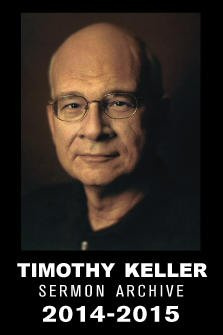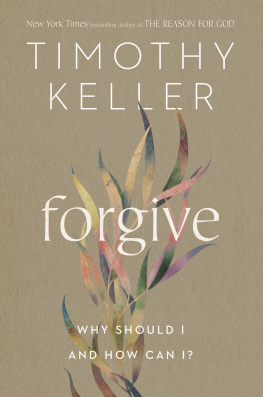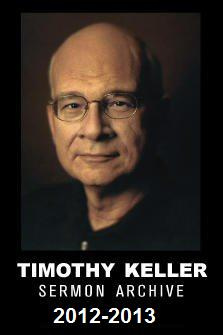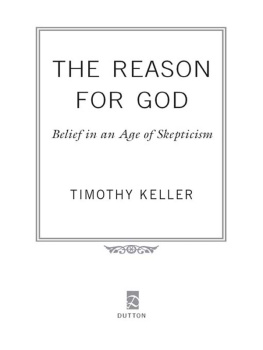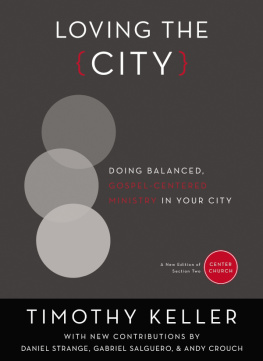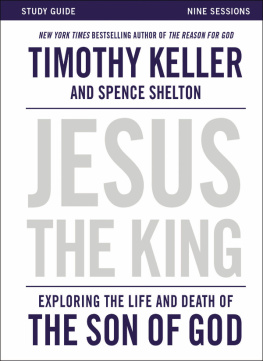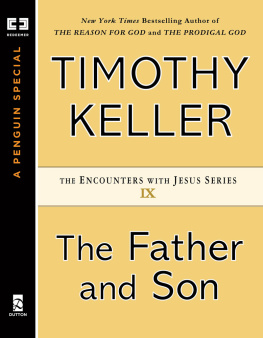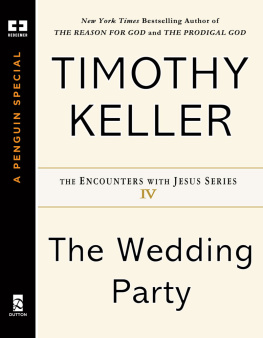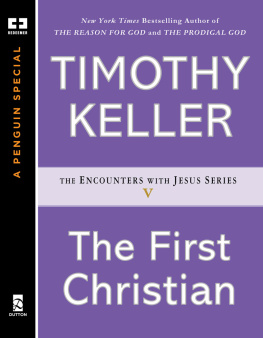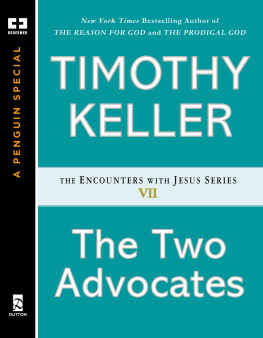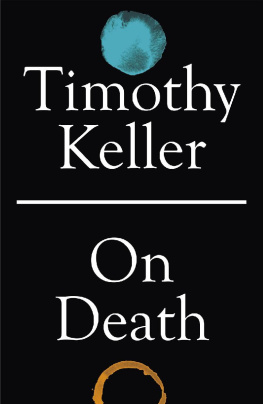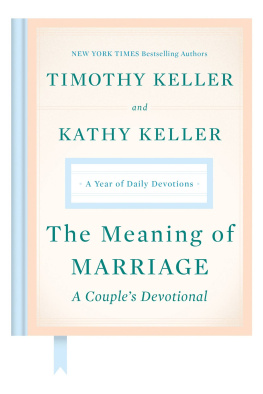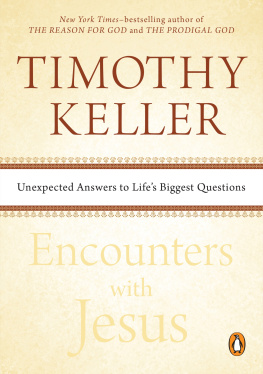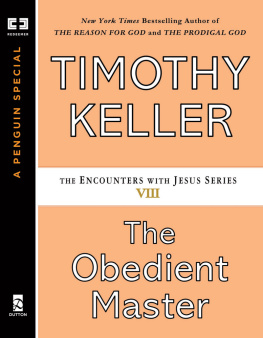Timothy Keller - Sermon Archive 2014-2015
Here you can read online Timothy Keller - Sermon Archive 2014-2015 full text of the book (entire story) in english for free. Download pdf and epub, get meaning, cover and reviews about this ebook. year: 0, genre: Religion. Description of the work, (preface) as well as reviews are available. Best literature library LitArk.com created for fans of good reading and offers a wide selection of genres:
Romance novel
Science fiction
Adventure
Detective
Science
History
Home and family
Prose
Art
Politics
Computer
Non-fiction
Religion
Business
Children
Humor
Choose a favorite category and find really read worthwhile books. Enjoy immersion in the world of imagination, feel the emotions of the characters or learn something new for yourself, make an fascinating discovery.
- Book:Sermon Archive 2014-2015
- Author:
- Genre:
- Year:0
- Rating:5 / 5
- Favourites:Add to favourites
- Your mark:
- 100
- 1
- 2
- 3
- 4
- 5
Sermon Archive 2014-2015: summary, description and annotation
We offer to read an annotation, description, summary or preface (depends on what the author of the book "Sermon Archive 2014-2015" wrote himself). If you haven't found the necessary information about the book — write in the comments, we will try to find it.
Sermon Archive 2014-2015 — read online for free the complete book (whole text) full work
Below is the text of the book, divided by pages. System saving the place of the last page read, allows you to conveniently read the book "Sermon Archive 2014-2015" online for free, without having to search again every time where you left off. Put a bookmark, and you can go to the page where you finished reading at any time.
Font size:
Interval:
Bookmark:
The Timothy Keller Sermon Archive, 20142015
Redeemer Presbyterian Church, 2014
Copyright 2017 Redeemer Presbyterian Church and Timothy J. Keller.
2014
Seeing Jesus
1 In the BeginningJohn 1:114
2 The LambJohn 1:1934
3 The FeastJohn 2:111
4 The HealingJohn 4:4654
5 The PoolJohn 5:118
6 The FeedingJohn 6:114, 2735
7 The CrossingJohn 6:1625
8 The Man Born BlindJohn 9:17, 3538
9 Out from the GraveJohn 11:1844
Questioning Christianity
1 A Meaning That Suffering Cant Take Away
2 A Strong Basis for Doing Justice
3 An Identity That Doesnt Crush You or Others
4 Hope that Transforms
5 Questions About God
6 Questions About the Bible
7 Questions About Jesus
Knowing Jesus
1 ScriptureLuke 4:113
2 MissionLuke 5:425
3 WorshipLuke 19:2840
4 Clothed With PowerLuke 24:3649
Following Jesus
1 Encountering the Risen JesusMark 14:2731; John 21:1519
2 Our Birth: Cosmic1 Peter 1:312
3 Our Identity: Joyful Exiles1 Peter 1:12; 2:912
4 Our Call: Holy Living1 Peter 1:1317
5 Our Cross: The Path of Suffering1 Peter 1:69, 3:1318
6 Our Power: Spirit-Filled Living2 Peter 1:311
7 Our Walk: The Freedom of Submission1 Peter 2:1317, 4:15, 5:511
8 Our Vocation: Lay Ministry1 Peter 2:410
Growth in the Spirit
1 PatienceJames 5:712
2 GoodnessMicah 6:68
The One Who Gives You Rest
1 The Great Question: Are You the One?Matthew 11:16
2 The Great Promise: Rest for Your SoulMatthew 11:2530
The Prayer of Prayers
1 Family: Our FatherGalatians 3:264:7
2 Awe: Hallowed Be Thy NamePsalm 63
3 Hope: Thy Kingdom ComeLuke 6:2026, 4649
4 Struggle: Thy Will Be DoneMatthew 26:3646
5 Reality: Forgive Us Our DebtsPsalm 51
6 Battle: Lead Us and Deliver UsPsalm 73:13, 1326
7 Repose: The Power and GloryPsalm 27
8 Word: Teach Us to PrayPsalm 1
Matthews Messiah
1 The Mothers of JesusMatthew 1:117
2 The Fathers of JesusMatthew 1:1825
3 The Magi and JesusMatthew 2:112
4 The World and JesusMatthew 2:1323
In the Beginning
Seeing JesusJanuary 5, 2014
John 1:114
1In the beginning was the Word, and the Word was with God, and the Word was God. 2He was with God in the beginning. 3Through him all things were made; without him nothing was made that has been made. 4In him was life, and that life was the light of all mankind. 5The light shines in the darkness, and the darkness has not overcome it.
6There was a man sent from God whose name was John. 7He came as a witness to testify concerning that light, so that through him all might believe. 8He himself was not the light; he came only as a witness to the light. 9The true light that gives light to everyone was coming into the world. 10He was in the world, and though the world was made through him, the world did not recognize him. 11He came to that which was his own, but his own did not receive him.
12Yet to all who did receive him, to those who believed in his name, he gave the right to become children of God13children born not of natural descent, nor of human decision or a husbands will, but born of God. 14The Word became flesh and made his dwelling among us. We have seen his glory, the glory of the one and only Son, who came from the Father, full of grace and truth.
The Word of the Lord.
Christmas is the time of the year in which we, as a church, observe and think about the birth of Jesus. Lent is the time in which we think about the meaning of the death of Jesus. Traditionally, in the church year, the season between Christmas and Lent (not as well known a season) has a name: Epiphany. Epiphany means looking not at the birth or death of Jesus but at the life of Jesus, what he said, and what he did.
You cant really understand the real Jesus if you only look at his birth and his death. You must also look at his words and his deeds during his life. Thats what were going to do for the next two months. Were going to take one particular gospel, the gospel of John, and were going to look at the words and deeds of Jesus in his life between his birth and his death.
We start today with John 1, the prologue, one of the most rich and famous parts of the Bible. In some ways it takes pressure off a preacher, because preachers always feel like, I have to pull out all of the great stuff thats in this text, but this is one of those times in which theres too much great stuff to pull out that I couldnt possibly get it all. So I would like to give you a top-level view of it by outlining it and looking at the three main parts and, therefore, the three main points.
Verses 14 are about a claim: a radical, amazing claim. Verses 511 are about the rejection of that claim. But verses 1214 are the answer to the objections to the claim. So you have the claim, the rejection of the claim, and the answers to the objections to and rejection of the claim. Lets walk through it like that.
1. The claim. The first four verses, which are very famous, constitute a claim. Its a claim about the Word. There are five things were told about the Word.
First of all, the Word is a person; its personal. Notice the word he. Secondly, the Word was divine. The Word was God. Thirdly, were not just talking about a divine-ish kind of person. This is a person who was never created; he doesnt have a beginning. It says, Through him all things were made; without him nothing was made that has been made. This means everything that has a beginning, found its beginning in him, which means he is without beginning.
Fourthly, we have an uncreated, divine person, the source of all life. In him was life (not just he got life or has life); all life comes from him. And the last thing we learn is all the way at the bottom. In verse 14 it becomes very clear this is Jesus Christ.The Word became flesh and made his dwelling among us. We have seen his glory
We could obviously spend five hours, days, weeks, maybe even years taking each of those five claims and pulling them out, but whats really significant is the word Word. Its the fact that John uses this very interesting and unusual way of describing Jesus Christ. He says In the beginning was the Word (Jesus is the Word), and because he wrote in Greek, the Greek word he used here was logos. In the beginning was the Logos; Jesus Christ was the Logos; the Logos became flesh.
John deliberately used a word here that had an enormous amount of cultural, linguistic, and philosophical freight. He deliberately used it, and the only way were going to understand what it means, why he used it, and what a radical claim this is if we can get some background. You have to start with the Greek philosophers, because they came up with this idea of a logos. They looked at nature, and do you know what they saw? They saw balance, harmony, and an order to nature, and they posited there was a spiritual, cosmic principle of order behind it.
Heres one philosophy book that says, The Logos for the Stoics merged with the impersonal, harmonious, and divine structure of the cosmos as a whole. So behind the order and balance of nature was the logos. The word logos, of course, didnt just mean word. It has a broader semantic range than our word word. Logos means purpose or reason (logic) for life. In other words, when they said, We believe the universe has a logos, that means theres an absolute truth or reason for its existence. Theres a meaning or purpose to things.
This is pretty high. Are you getting a philosophical nosebleed? To get the gist of this, I have to talk about our space heaters in our apartment. You know Local Law 11. Every so often they have to do brick work on the front of our building. So our building is going through Local Law 11. We have these guys going up and down, knocking the bricks out and all that, and during the day we are not allowed to turn our heaters on because it blows out on the guys.
Next pageFont size:
Interval:
Bookmark:
Similar books «Sermon Archive 2014-2015»
Look at similar books to Sermon Archive 2014-2015. We have selected literature similar in name and meaning in the hope of providing readers with more options to find new, interesting, not yet read works.
Discussion, reviews of the book Sermon Archive 2014-2015 and just readers' own opinions. Leave your comments, write what you think about the work, its meaning or the main characters. Specify what exactly you liked and what you didn't like, and why you think so.

